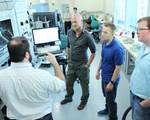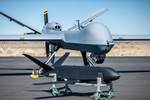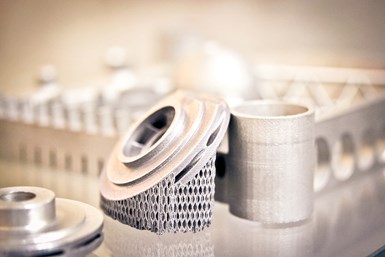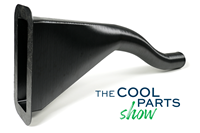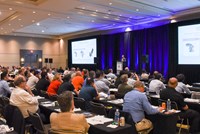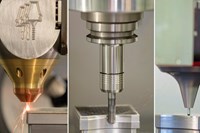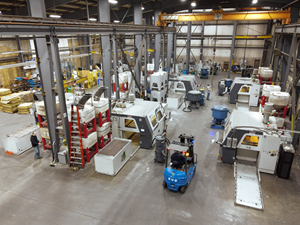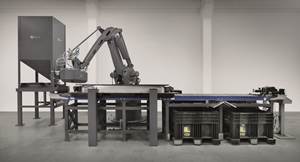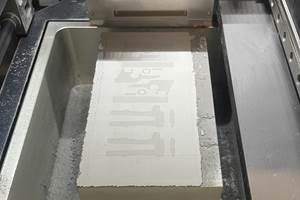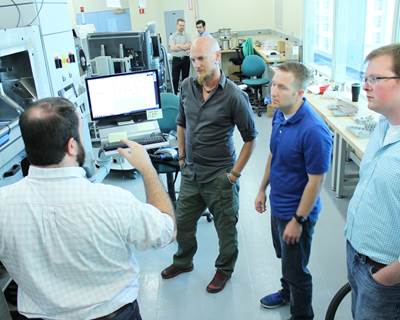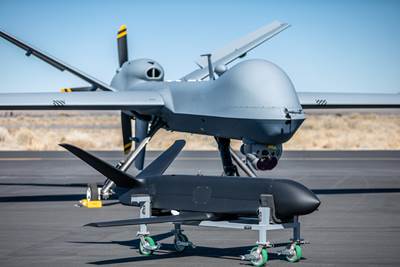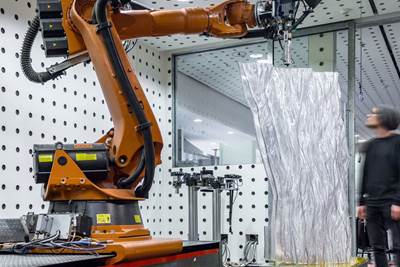America Makes Announces IMPACT 2.0 Project Call Worth $6.6 Million in Funding
The deadline for the first set of project proposals is May 29.
America Makes and the National Center for Defense Manufacturing and Machining (NCDMM) have announced a new open project call funded by the Office of the Secretary of Defense Manufacturing Technology Program (OSD ManTech) worth a total of $6.6M. The project call for Improvements in Manufacturing Productivity via Additive Capabilities and Techno-Economic Analysis 2.0 (IMPACT 2.0) consists of two areas of focus and aims to demonstrate lead time, productivity and yield improvements for casting and forging (C&F) manufacturing operations using additive manufacturing (AM) technologies. Seven awards are anticipated with the maximum request for funding varying depending upon the specific topic area.
The IMPACT 2.0 request for proposal (RFP) is separated into two documents, Part A and Part B.
- Topics 1-4 ($5.1 million)
- Topic 1 ($2 million): Mature and Promote Methods to Add Functional Surfaces and Complex Geometric Features to Forgings
- Topic 2 ($1.5 million): Disseminate Leading Practices and Promote the Adoption of 3D printed Sand Molds/Cores
- Topic 3 ($1.1 million): Techno-Economic Analysis Tool for Selection of Metal Part Manufacturing Processes
- Topic 4 ($500,000): Ensure Operational Recovery of Industrial Production
- Rapid Casting Demonstration Challenge – Two Step ($1.5 million)
“Over the last two decades, the U.S. casting and forging industry has faced challenges related to capability and capacity,” says John Martin, AM research director at America Makes. “This poses a significant obstacle in acquiring essential components for critical weapons and support platforms, making it of vital importance to defense and economic stability.”
The IMPACT project call aims to bring together members from industry, academia, government workforce and economic development organizations to address these types of challenges by working together to accelerate the adoption of AM and the nation's global manufacturing competitiveness.
“Many AM technologies that can be used to augment casting operations are mature and have been demonstrated successfully in many areas throughout the supply chain,” Martin adds. “However, these capabilities not only need to be disseminated and further scaled but also challenged in a real-life demand scenario. For this reason, the IMPACT 2.0 project call offers two parts to help identify strengths and weaknesses within these integrated manufacturing approaches. This call to action will ultimately enable our members and project teams to research, develop and implement advanced solutions in the C&F sector and mitigate risks to the supply chain that impact defense and the economy.”
Project call timeline:
- Questions Due from Proposers about Scope or Approach: April 22
- Membership Eligibility Deadline:
- May 29 for Part A/Topics 1-4
- June 12 for Part B/Step 1 and Step 2
- Submission Deadline by 5 p.m., ET:
- June 14 for Part A/Topics 1-4
- May 10 for Part B/Step 1; June 28 for Part B/Step 2
- Anticipated Awards Announcement is July 24
Proposers for the project call are advised to reference the RFP for full details and guidelines for Improvements in Manufacturing Productivity via Additive Capabilities and Techno-Economic Analysis 2.0 (IMPACT 2.0):
America Makes is the National Additive Manufacturing Innovation Institute. As the national accelerator for AM, America Makes is a leading and collaborative partner in AM and 3DP technology research, discovery, creation and innovation. Structured as a public-private partnership with member organizations from industry, academia, government, nongovernment agencies, and workforce and economic development resources, the group is working together to innovate and accelerate AM to increase the nation’s global manufacturing competitiveness. America Makes is the first Institute within the Manufacturing USA infrastructure and is driven by the NCDMM.
Related Content
Looking to Secure the Supply Chain for Castings? Don't Overlook 3D Printed Sand Cores and Molds
Concerns about casting lead times and costs have many OEMs looking to 3D print parts directly in metal. But don’t overlook the advantages of 3D printed sand cores and molds applied for conventional metal casting, says Humtown leader.
Read MoreStratasys and Desktop Metal to Combine in Approximately $1.8 Billion All-Stock Transaction
Merger looks to deliver industrial polymer, metal, sand and ceramic solutions from design to mass production.
Read MoreOptimized Castings, Fast Turnarounds with Sand 3D Printing
IMTS 2022: ExOne’s S-Max Flex pairs industrial robots with an end effector printhead design that deposits binder into a 1,900 × 1,000 × 1,000 mm (74 × 39 × 39") telescoping build box that grows as the parts are built layer by layer.
Read MoreAM 101: What Is Binder Jetting? (Includes Video)
Binder jetting requires no support structures, is accurate and repeatable, and is said to eliminate dimensional distortion problems common in some high-heat 3D technologies. Here is a look at how binder jetting works and its benefits for additive manufacturing.
Read MoreRead Next
4 Ways the Education and Training Challenge Is Different for Additive Manufacturing
The advance of additive manufacturing means we need more professionals educated in AM technology.
Read MoreAt General Atomics, Do Unmanned Aerial Systems Reveal the Future of Aircraft Manufacturing?
The maker of the Predator and SkyGuardian remote aircraft can implement additive manufacturing more rapidly and widely than the makers of other types of planes. The role of 3D printing in current and future UAS components hints at how far AM can go to save cost and time in aircraft production and design.
Read More3D Printing Brings Sustainability, Accessibility to Glass Manufacturing
Australian startup Maple Glass Printing has developed a process for extruding glass into artwork, lab implements and architectural elements. Along the way, the company has also found more efficient ways of recycling this material.
Read More

